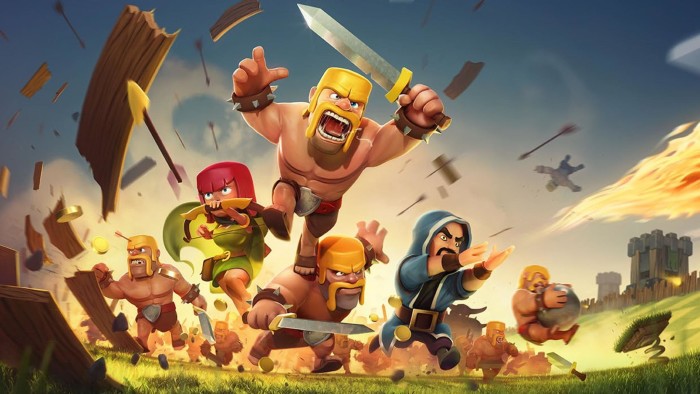Supercell battles on to conquer mobile gaming


Roula Khalaf, Editor of the FT, selects her favourite stories in this weekly newsletter.
Mobile gaming companies are a colourful lot, from the bright reds, greens and yellows of games like Candy Crush Saga and Jelly Splash to the cartoon graphics of Clash of Clans or the Simpsons.
But a dark gloom has descended over this young industry after the disappointing stock market debut last week of King, the Anglo-Swedish maker of Candy Crush. Two years after the dismal flotation of Zynga – another digital gaming company derided as a flash in the pan – other European games designers fear they will be tarnished by the same brush.
“I hate to say I told you so – but I told you so. My big worry is that they’ve messed it up for the rest of us. We’d just got VCs [venture capital groups] finally interested and now . . . well, it is likely to be more difficult,” says one Nordic games designer.
Despite all the dark mutterings over King’s initial public offering, last week also provided a cause for celebration in the mobile gaming community. Supercell, a Finnish company valued at $3bn, launched only its third full game in its four-year history.
But a lack of releases does not mean a paucity of returns. Boom Beach, the new game based on troops fighting to gain control of various islands from mercenary forces, has established itself in the top 10 grossing apps for the iPhone and iPad alongside Supercell’s two other releases, Clash of Clans and Hay Day.
The latter two games – launched in summer 2012 – pulled in a combined $5.2m per day, according to leaked figures from February.
In many ways, Supercell is the anti-King. Whereas King rushed to float on the stock market despite worries that four-fifths of its revenues come from just one game – Candy Crush – Supercell has been in no hurry to list. Last year it sold half of itself to SoftBank, the Japanese telecoms group, for $1.5bn.
That increasingly looks a steal. The leaked download figures – which came before Boom Beach’s release – suggest that Supercell’s 2014 revenues are on course to more than double last year’s $892m, which generated $464m in operating profits. Not bad for a company with just 140 workers.
The SoftBank sale allowed Supercell’s venture capitalist backers, as well as its own workers and management, to cash in a portion of their holdings. The move limited the pressure to go for a listing that, as King has found, would likely come with awkward questions.
Supercell’s patience also extends to the crucial art of designing games. The group has proved ruthless about killing off games that do not live up to its high standards. Its first game developed for the iPad – a combat game called Battle Buddies – was unceremoniously terminated in 2012 after failing to conquer the mass market during testing.
“We gave it a few months and just couldn’t get enough interest for the game so we decided: OK, we need to do something else,” Ilkka Paananen, Supercell’s chief executive, said last year.
Instead of crying over all the lost hours of development, Supercell makes the killing off of a game a cause for celebration. Each member of the seven to 10-person “cell” that worked on the game is given a bottle of champagne.
The ruthlessness serves a purpose. Clash of Clans, a combat game, and Hay Day, set on a farm, have barely dropped out of the top five, let alone top 10, list of highest grossing apps since shortly after their launch nearly two years ago.
Mr Paananen stresses that Supercell’s goal is to make games that are played for a very long time, potentially years rather than days.
As if to demonstrate the point, just as the Finnish company launches Boom Beach , it is also readying one of the biggest ever updates to Clash of Clans, its biggest hit. Mr Paananen even talks admiringly about the 300-year vision of SoftBank’s founder, Masayoshi Son.
That focus provides a counterpoint to King. Candy Crush has proved immensely addictive – counting the likes of Norway’s prime minister Erna Solberg as a fan – but many of King’s 180 other games such as Papa Pear Saga or African Rainmaker seem more ephemeral. Just three of the 180 games account for 95 per cent of King’s gross bookings, a measure of customer spending.
In such a young and fast-moving industry, picking winners and losers so early on is nigh on impossible. Questions remain over everything from how long these games can stay successful to whether a new format – virtual reality, perhaps? – will one day supplant mobile gaming. But as the early success of Boom Beach demonstrates, Supercell is now setting the standards in the industry.
Richard Milne is the FT’s Nordic Correspondent
Comments